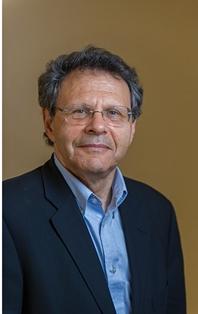The HCFO program ended in December 2016.
This site will no longer be updated, and some elements may not appear correctly.
Jack Needleman, Ph.D.

Jack Needleman, Ph.D., FAAN, is a professor in the Department of Health Policy and Management at the Fielding School of Public Health at the University of California Los Angeles (UCLA), where he is also the Associate Director of the UCLA Patient Safety Institute. His research interests include quality measurement and quality improvement, healthcare cost containment and organizational change, shifts in health care markets, and the economic and market behavior of hospitals, physicians, insurers, and consumers.
Dr. Needleman’s most recent research has focused on hospital quality and staffing and on the evaluation and design of performance improvement activities. He has developed quality measures that are currently in use by AHRQ, Medicare, Joint Commission, and National Quality Forum. Dr. Needleman is an honorary Fellow of the American Academy of Nursing and he is an elected member of the Institute of Medicine. He currently serves on the Steering Council for the NIH-funded Improvement Science Research Network.
Dr. Needleman received his Ph.D. in Public Policy from Harvard University. Prior to joining the UCLA faculty in 2003, he served as a faculty member in the Harvard School of Public Health and was the Vice President and Co-Director of the Public Policy Practice at the Lewin Group.
In a recently awarded grant from HCFO, Dr. Needleman and colleagues will examine the effect of changes in the Emergency Medical Treatment and Active Labor Act (EMTALA) on the treatment of disadvantaged patients relative to commercially insured patients at hospitals in four states. EMTALA requires that Medicare-participating hospitals screen patients in the emergency department and either stabilize the emergent condition or transfer the patient into another facility. The law is designed to prevent hospitals from discharging or transferring uninsured and other non-paying patients before properly stabilizing them.
The researchers will use a difference-in-difference-in-difference design and discharge-level hospital data from 2008 to 2010 to compare admissions, inpatient length of stay, and readmissions at hospitals in four states. Two of the study states are subject to the EMTALA rule established by the Center for Medicare and Medicaid Services (CMS) in 2003. The two remaining study states are subject to a more expansive EMTALA rule imposed by the U.S. Court of Appeals for the Sixth Circuit. The goal of this project is to provide information to CMS on whether its 2003 EMTALA policy change may be having adverse consequences for uninsured and other vulnerable patients.
Additional information about Dr. Needleman’s HCFO-funded work is available here. More information on his research and a list of selected publications can be found here.
